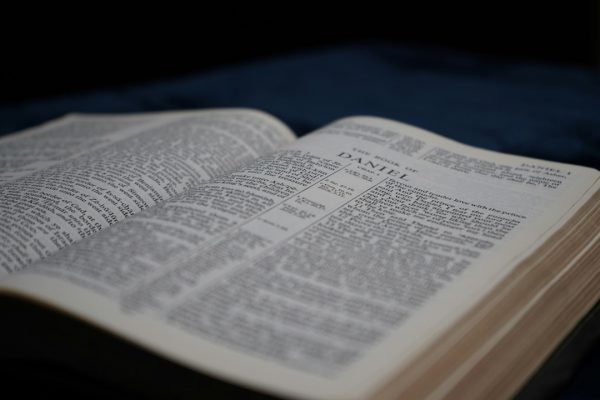ROI (Return on Investment) is a very useful financial metric for determining the profitability of an investment relative to its costs. We want to ensure our precious and limited resources are put to optimal use, so calculating the ROI of any investment—whether it be time, money, or energy— is almost a no-brainer. With this metric in mind, it’s easy to see understand why many (if not all!) Christians struggle with Bible reading, prayer, fasting, and even church attendance. Compared to the costs, these activities seem to generate negligible returns. In other words, the spiritual disciplines, which are fundamental to the Christian life, seem to have a very poor ROI.
Rome Wasn’t Built in a Day
The reason why these spiritual disciplines seem to have a terrible ROI is that our culture has conditioned us to expect immediate results from them. We expect our prayers to be answered our way, in our timing, for our own benefit. We read the Bible like a social media post, skimming and scrolling through it, ignoring the details; too impatient and distracted to actually study it; tempted to only read the stuff we like or agree with. We expect church services to be “experiences” that will be instantly life-changing and noticeably uplifting, or else we’ll take our business somewhere else. We are a people of lifehacks, shortcuts, fast food, and the Next Big Thing.
But the spiritual disciplines of the Christian life, or Habits of Grace as one pastor more helpfully describes them, were never intended to be like a vending machine or the lottery. As Eugene Peterson famously put it, discipleship is a “long obedience in the same direction.” Prayer, Bible reading, and church attendance are more along the lines of diet and exercise. With diet and exercise you don’t see results immediately. One week of eating healthy eating and hitting the gym doesn’t guarantee you washboard abs, bigger guns, or a healthier heart. And yet, it’s the slow and steady gains from diet and exercise, the constant reps and miles, day after day, week after week, year after year, that help you not only change your life but also develop the proper habits to stay healthy. Rome wasn’t built in a day, and God has willed that our sanctification (i.e., becoming more like Christ) be progressive, rather than immediate as well.
The ROI of Spiritual Disciplines
While the ROI of the spiritual disciplines seems quite lousy, upon closer inspection, Scripture assures us that the long-term returns far outweigh the initial costs.
Bible Reading. As we meditate, think over, and saturate ourselves with Scripture, the Lord promises to give us understanding in everything (2 Tim. 2:7), make us wise for salvation (2 Tim. 3:15), and give us instruction and encouragement so we can persevere with hope (Rom. 15:4). Reading, memorizing, and meditating on Scripture gives us joy in life (119:111), comfort in affliction (50), and wisdom (98); it keeps us from sin (11) and keeps our lives pure (9). Ultimately, the more we know the word of God, the more we know, enjoy, and become like the Word made flesh (cf. 2 Cor. 3:12-18).
Prayer. Through prayer, we learn to daily align and recalibrate ourselves with God’s will. We praise him for his goodness, thank him for grace, and ask him for what he has promised us. Prayer changes us to become people who wholly depend on our loving Father for power, provision, and preservation as pilgrims in this life. Not only has God willed that prayer be the means by which he works in history, but prayer is ultimately how we learn to commune, love, and fellowship with the Father, through the Son, by the Spirit (Eph. 2:16).
Church Attendance. The benefits of attending the public worship gathering of the local church far outweigh the costs. Through the fellowship and worship of the local church we are sustained and nourished by Christ. As we hear the word, read the word, sing the word, pray the word, and even see the word in the Lord’s Supper and Baptism, we are built up by God’s grace (Acts 20:32). Corporate worship is another way to let the word of Christ dwell in us richly. Furthermore, it serves as a ministry of encouragement to others. Just as you still were nourished by the food you ate, even if you can’t remember what you ate exactly, God uses the public gathering of his people to strengthen, nourish, and conform us to Christ, even if we don’t recall the worship services being exciting or life-changing.
The Greatest ROI: Knowing and Enjoying Jesus
When we look to Scripture and see what God himself tells us about prayer, Bible reading, and gathering for worship, we find that the ROI is uncalcuably glorious. Through these spiritual disciplines and means of grace God instructs sinners in the way, leads the humble in what is right, teaches the humble his way (Ps. 25:8-9). Why? All so that we may know and enjoy his Son, Jesus Christ, for all eternity.
No, we won’t always see immediate results; we won’t always see an immediate return on our investments into these activities, which often can seem dull or useless. But our task nevertheless is simply to do what God has commanded us, to wait on the Lord with patience and humility, and to trust whole-heartedly that he will graciously give us all that we need in order to do his will and be conformed to the image of his Son (Rom. 8:28-34). May we press on, through these means of grace, to know the Lord, be found in him, and be made like him (Phil. 3:8-14; cf. Hos. 6:3; John 17:3).




